What's it Like to be in Immigration Lockup During a Pandemic?
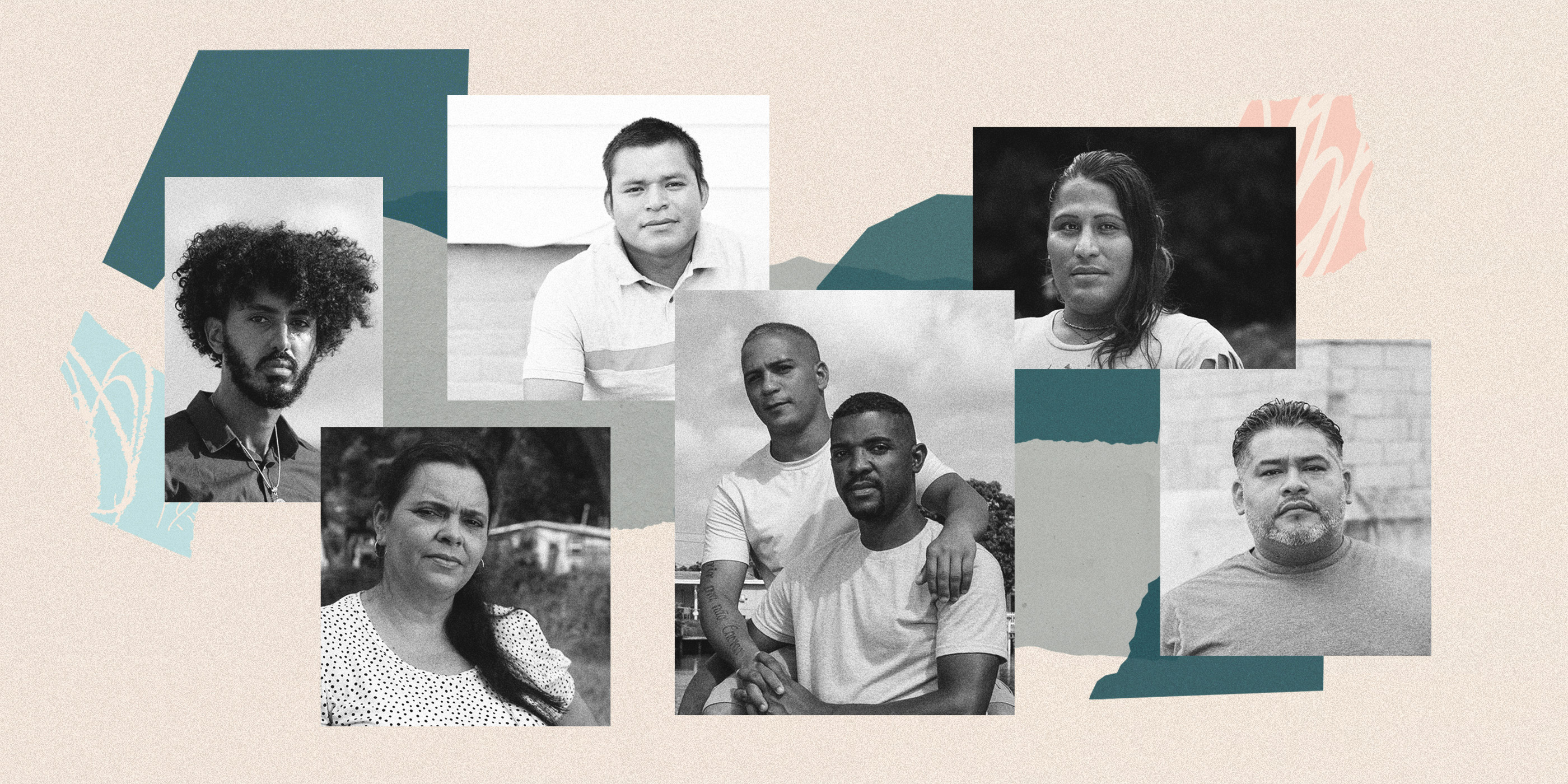
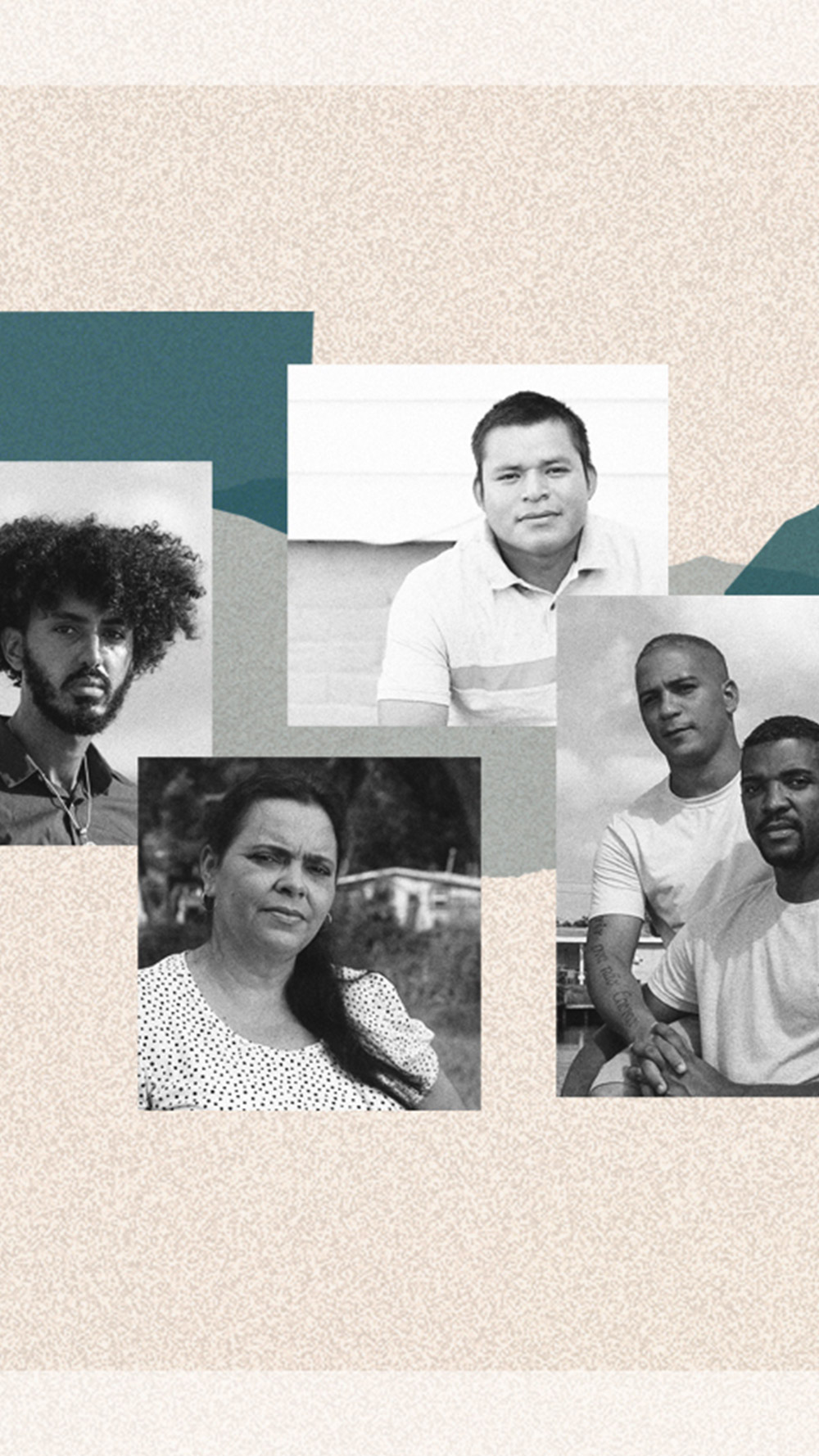
In the 1980s, fewer than 2,000 people were locked up in an immigration detention facility on an average day in America.
Since then, that number has skyrocketed, quadrupling from 7,475 to 32,985 people detained by ICE per day between 1995 and 2016. Under the administration of President Donald Trump, the numbers have shot up even higher — at one point last year, a staggering 56,000 people were behind bars each night in an ICE detention facility. When asylum-seekers and other migrants in Customs and Border Protection facilities are included, the total figure rises to nearly 80,000 people detained by the U.S. government per day.
This explosive growth of the U.S. immigration detention system tracks the rise of mass incarceration in America, prompted by punitive legislation passed by Congress in the mid-1990s around the same time as the infamous “,” and later through a massive post-9/11 expansion. Since then, the number of detained immigrants in the U.S. has grown nearly every year under Democratic and Republican administrations alike. Now, it’s a sprawling prison system, with 40 new immigration detention centers opening their doors just since the beginning of the Trump presidency alone.
For immigrants caught in this system, life is often a nightmare of , , , , to other facilities across the country, , and long periods spent away from family members and loved ones.
The COVID-19 crisis once again on the abuse and neglect that is deeply embedded in these detention facilities. While the rest of the country hunkered down in their homes, immigrants in detention have been forced to confront the pandemic in cramped conditions without adequate cleaning protocols or in some cases even basic sanitation supplies like soap. Guards have against immigrants protesting those conditions, and ICE has resisted efforts to secure their release for public health reasons.
A combination of lawsuits and public pressure eventually forced ICE to release from detention because of concerns over the spread of COVID-19 between mid-March and early May. Legal actions brought by the ACLU have secured the release of more than 450 people so far. But there are still more than 21,000 people in immigration detention — a drop since last year’s high that is largely attributable to a near-total shutdown of the southern border.
Whenever a new administration takes office, it will inherit an immigration detention system that has become an out-of-control, wasteful, and cruel behemoth. Drastically reducing the number of people trapped inside that system will be a crucial first step towards establishing a more humane and responsible immigration policy.
In recent weeks, the ACLU interviewed a number of immigrants who were released from detention due to concerns over the COVID-19 crisis. They shared the following stories of what it was like to be incarcerated in an immigration detention facility during the pandemic.
*Note: interviews have been condensed and edited.
****
JESUS
Dreamer, born in Mexico.Detained at the in Pennsylvania for over 12 months.

Credit: Marco Calderon for the ACLU
“My mother and father had been here for a long time. When I was 7, she came to pick us up in Mexico, and we crossed somewhere in Arizona. I’ve been here ever since then.
“At a young age I started working in restaurants. When I got to high school, in my mind I said, ‘Okay, what’s going to happen?’ I can’t get financial aid, at that point there was no DACA, so I wound up dropping out. I can’t complain about it because I became a plumber, which is what I’ve been for the past 18 years.
“My wife is an American citizen, and my kids were all born here. I’ve never been to Mexico. I mean even though it’s my country, it’s a strange country. I’ve been here all my life. I have an 18-year-old daughter, along with a 10-year-old, a 7-year-old, and my son, who’s 5.
“We recently moved to Pennsylvania, where I purchased a property to fix up and started working with a real estate company. We’re trying to build a future for our kids.
“I was already on ICE’s radar from a DUI in 2010. They picked me up at my house on April 2, 2019. I came out to warm up the car to bring my kids to school, when an officer grabbed me by my neck. They showed me their badge, which said ICE, and I realized they’d come for me.
“I told my wife to contact my lawyer because she was begging them, you know, saying ‘He didn’t do anything wrong. Why are you taking him?’ The kids were crying. It was very sad, but I asked my wife not to beg them. They took me to Pike County [Correctional Facility], and that’s when it started.
“When you first get there, you’re nervous. You don’t know what’s going to happen. So it’s very scary. You have people in there that get so stressed that they break down.
“And if they see that they send you to the nurse, who asks, ‘How are you feeling? Are you stressed?’ Well yes, of course.
“But if you start answering the questions honestly, all of a sudden they put you in what they call the turtle suit,* because they’re afraid you're going to hurt yourself. So then you’re locked up in solitary for two or three days while they observe you. It makes it so much worse. You can't contact your family. It’s really sad.
“Seeing your family through glass is hard. I told my wife after the first time she visited me that unless the kids really want to come, I don’t want you to bring them. It’s like you’re in there trying to distract yourself and once you see each other it’s like reopening a wound that’s closing.
“Once COVID started going we started hearing rumors that it was already in other cell blocks. The [ICE staff] kept on quitting. They were overworked always, but once COVID hit forget it, they were understaffed. It came to a point where we’d be on lockdown for 23 and a half hours a day.
“I’m high risk — I have high blood pressure and asthma — so they released me. When I got into the car, me and my kids just started hugging each other and crying. As a child I went through so much domestic violence. I didn’t want my kids to go through anything like that so I’ve always spent as much time as I can with them.
“Not being with them for a whole year was extremely hard, and seeing them again was the most amazing thing. And here we are, you know. Trying to push forward.
“I’m only out because of the coronavirus. Once it’s over, I’m scared that they might come and pick me up again.”
*An “anti-suicide smock” that resembles a straitjacket.
****
ADRIAN AND YASMANI
Asylum-seeking couple originally from Cuba.Detained at for over three months.
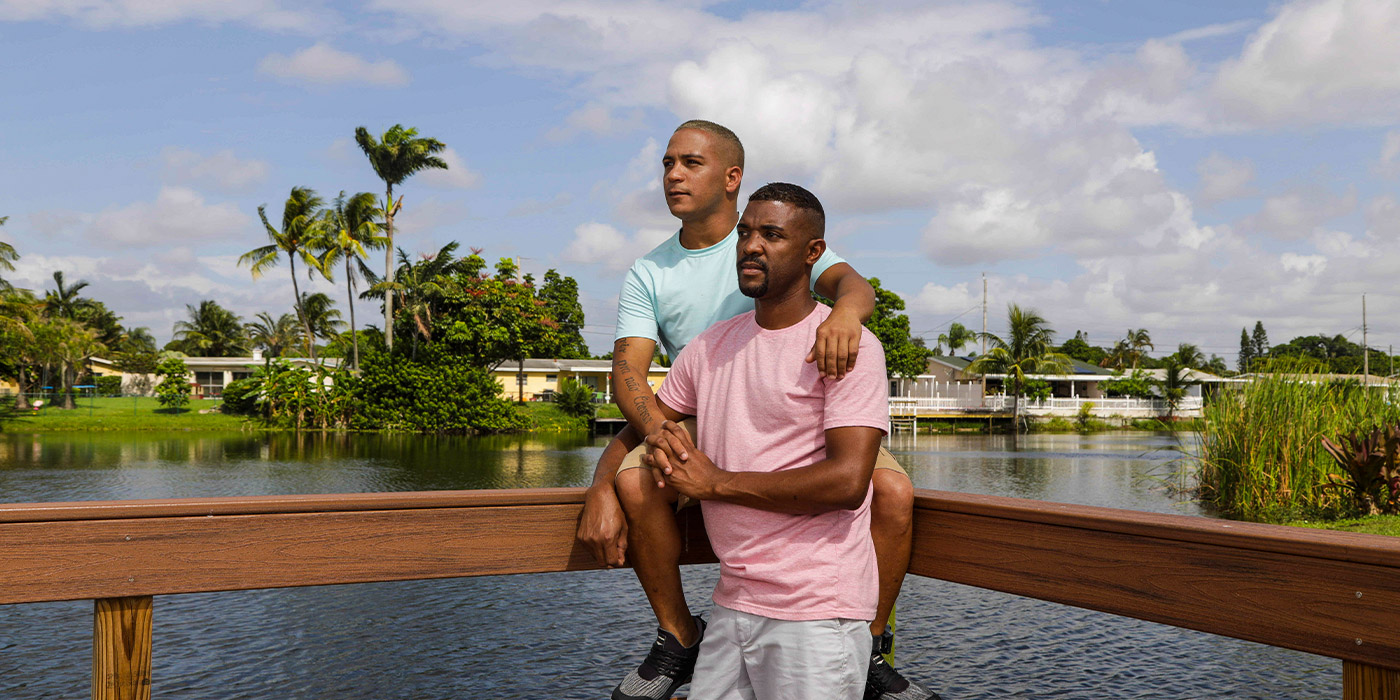
Credit: Saul Martinez for the ACLU
Adrian: “Before I left, I was in charge of sending doctors on mission trips to other countries.”
Yasmani: “I worked at a radio and television agency, organizing programs and broadcasters for the night schedule.
“We left Cuba for Guyana, traveling to Brazil and then up through the Americas into Mexico. We were in Tijuana for months until our numbers were called so we could turn ourselves in at the border in San Ysidro [outside of San Diego, CA].”
A: “After being detained in a border detention center known as a ‘hielera,’ we were transferred to the Otay Mesa detention center. It was horrible there, like another world. When the coronavirus started, we went on a hunger strike because they weren’t giving us masks. [The guards] started attacking us. They would show up dressed all in black with tear-gas guns and threaten us, saying go back to your rooms.
“We didn’t want to; we wanted to be taken out of there. We did things right, waiting for the process in Mexico only to be treated like that. They didn’t care. They had masks and we didn’t.
“They took away about seven people from our pod, because a guard had coronavirus. He would take his mask off and walk around coughing. After he stopped coming to work for about two weeks, they placed our pod in quarantine.
“Everyone realized that our pod had coronavirus and that’s when we started worrying more. We were trapped in there, but they didn’t adopt any measures; they didn’t give us anything and we couldn’t keep any distance. In fact, if someone got sick, they would take that person out of the pod for a week and after that they would bring the person back. As someone who is HIV positive, I feared I would not survive if I got sick in there.”
Y: “After being released, we felt good to breathe fresh air again. But in my case, I also feel bad because I have an ankle monitor on — you feel like you’re still a prisoner. They call you at night at all times and again at dawn. During the process, you can’t work. We don’t have jobs, and we aren’t independent.
“But I think, if we made it this far, it was God’s will — we just need to wait it out until the process happens.”
****
NAHOM
Refugee and lawful permanent resident, originally from Eritrea.Detained at the in Pennsylvania for two months.
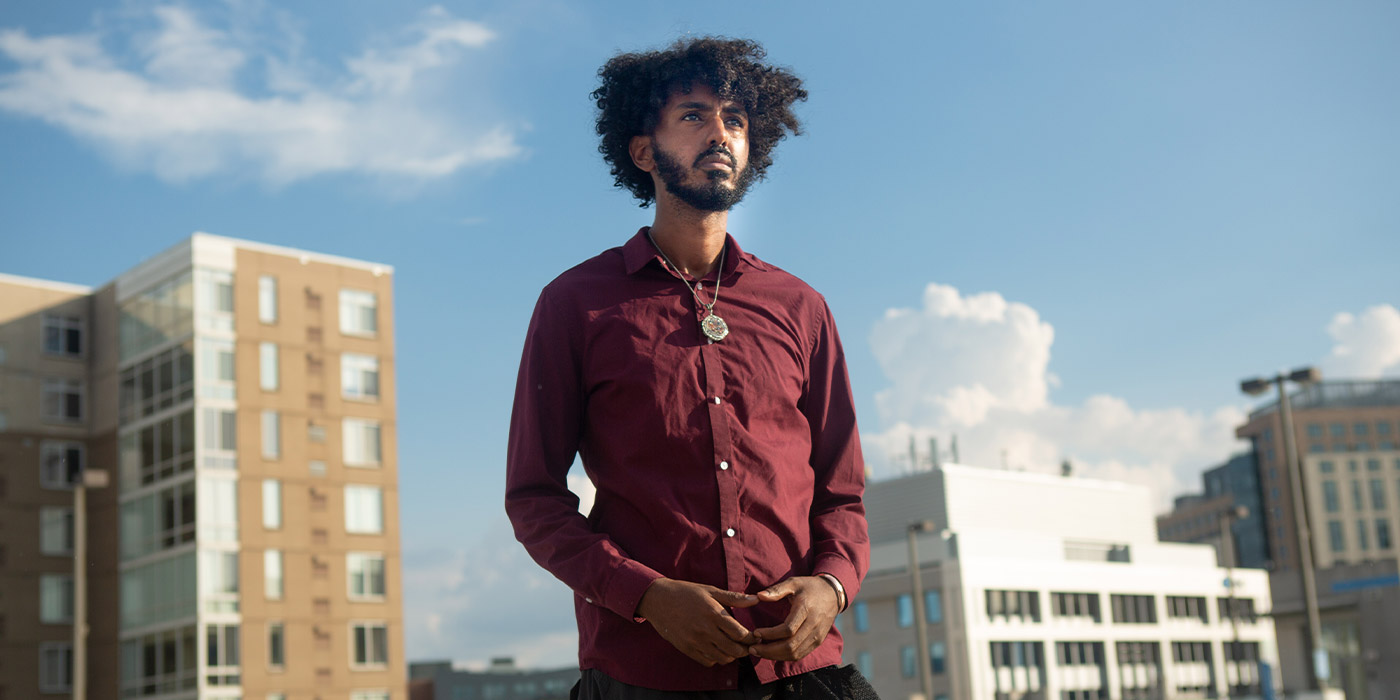
Credit: Allison Shelley for the ACLU
“I came here when I was 8 years old, from Eritrea with my family in 1998. We had gone through a lot of war, turmoil, and civil unrest. We were able to come to the United States as lawful permanent residents thanks to literal miracles from relatives here, and I’ve been here ever since.
“In 2007, I was diagnosed with Crohn’s disease. In the span of a few weeks, I went from weighing 200 pounds to 140. It altered my life completely. I was taking pain medications and anxiety medications. What got me into trouble with immigration was prescription fraud.
“I took a plea bargain because I thought it wouldn’t affect me in a negative way. I wasn’t thinking about immigration, I was just thinking about my parents back home. She’s 78, and he’s 91, and I needed to take care of them. They didn’t inform me it would affect me like this.
“Immigration picked me up from the jail and brought me to the York County Prison.
“The food there made me sick because of my Crohn’s disease, and I started losing weight. I couldn’t see a full-fledged doctor, just nurse practitioners. They didn’t really understand my condition, and it took awhile for them to get my medication. They treat you like you’re the scum of the earth. What I heard from other people as well is that they would treat a severe issue as if it was something to put a Band-Aid on.
“When COVID started, people went on hunger strike because the guards had masks, but we didn’t have anything. And they’d just wear them when they felt like it.
“They didn’t offer us anything until people stopped eating. It took a long time. There had already been a confirmed case in the jail, and they hadn’t done anything about it.
“I was amazed to get out. It was a literal miracle. I could properly take care of myself and have some sort of control over my life and health.
“I went straight to my mom and dad’s. They cried. They had thought the worst, since I’ve never been that long without them before. They were happy, but they were crying and worried at the same time.”
****
ALEJANDRA
Asylum-seeker, originally from Mexico.Detained at the for 8 months and the for 3 months. Both facilities are in Arizona.

Credit: Drew English for the ACLU
“Before turning myself over to immigration, I was waiting in Nogales, Mexico. I had trouble with the mafia there, and they cut off the thumb on my right hand. They told me to leave and that they didn’t want to see me again. I was in very bad shape, bleeding so much.
“I told a social worker that I was really scared and being followed, so she took me to [Border Patrol], and they said if I was in danger I should present myself at the port of entry.
“From Nogales they took me to the Eloy Detention Center, still in Arizona. At Eloy, they don’t have special conditions for trans women. They have us mixed in with the men. We suffered a lot of discrimination and abuse, but thankfully it didn’t go beyond that.
“Eventually I was transferred to La Palma [Correctional Center]. When the coronavirus situation first happened people were all crammed together, with no face coverings. They didn’t give us hand sanitizer or gloves, none of that. The [corrections officers] would work and cough, without any face coverings or protection. And they come from the outside while we are inside. I think that’s how people.
“A lot of people complained, but that’s when you realize they don’t care what you say. ICE said our right was to shut our mouths, take it, and wait for our turn to get out or be deported.
“When they told me I was getting out, I was so happy, because I’d been detained for nearly a year. I’m doing really well with my sponsors now, they’re beautiful people. They treat me very well. After so much struggling, here I am.”
****
ROGELIO
Undocumented resident, born in Guatemala. Has lived in the US since 2013.Detained for 15 days at the in Massachusetts, then for three and a half months at the in Dover, New Hampshire.
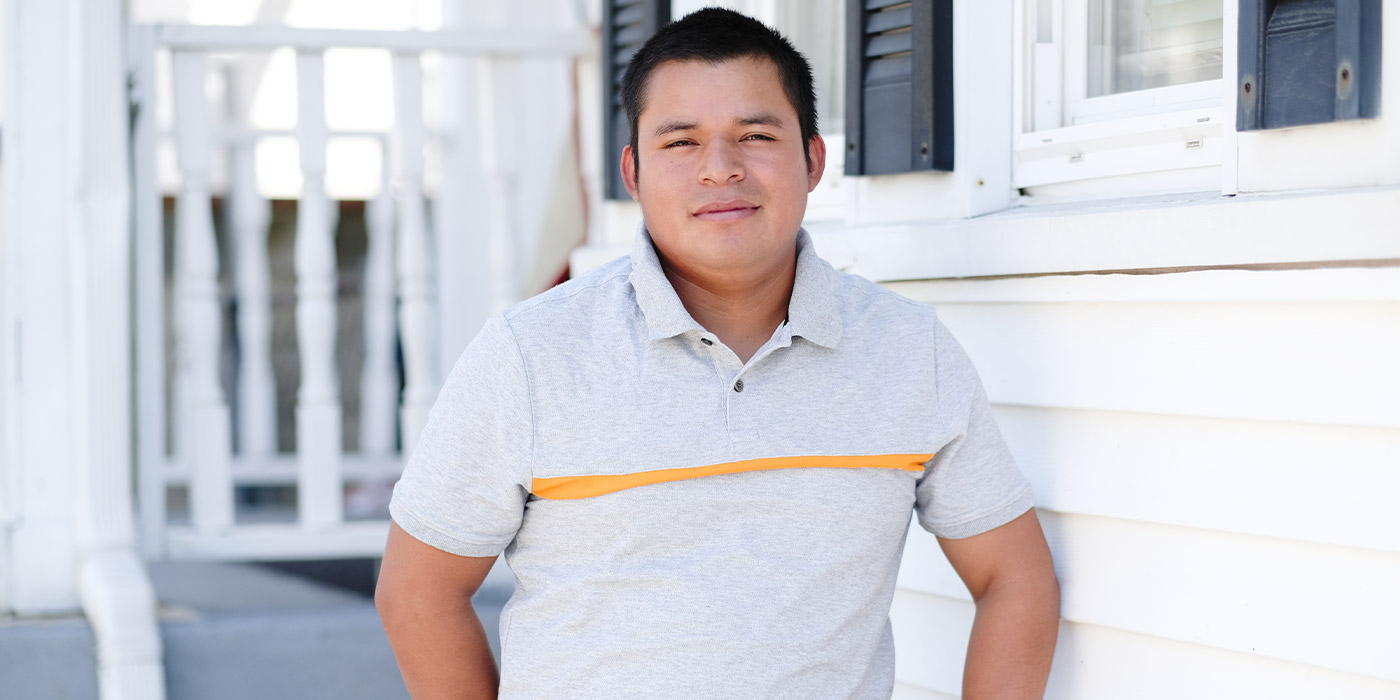
Credit: Channing Johnson for the ACLU
“When I first arrived, for about three years, I worked at pizzerias and restaurants. Now I work in construction. I like to spend time with my family and study English – that’s my hobby.
“It was just a day like any other. I was on my way to work at my construction job when ICE stopped us — they said it was a routine check, and that’s when they caught me.
“In detention, they give you a manual of what the rules are. They claim that you can go out in the courtyard and have fun or whatever, but it’s a lie. There’s no courtyard. I wouldn’t wish detention on my worst enemy because it truly is horrible. Some of the officers were very kind, but others just mess with you. One night my face and teeth were hurting and I told one of them I needed a painkiller. He said, ‘If you don’t go to bed, I’m going to put a mark on your record and send you to the hole.’
“We saw the news about the virus and started getting worried, because they were still bringing people in off the streets. We got scared when some people inside started having dry coughs. We were in bunk beds, all together, and couldn’t keep distance. There were a lot of sick people. I couldn’t say whether they had coronavirus or not, but they were rushed to the detention infirmary for eight, nine, 10 days. Some didn’t come back, and we never found out what happened to them. That’s when we got really scared, because we didn’t know what was going on.
“When I was detained, my wife was six months pregnant. I wasn’t there for the birth of my first-born child. That’s what I cared about — being with them. When I was released, he was about two weeks old.
“I was really happy, because I felt like I’d been in a contagion zone. I wouldn’t like to go back, and I wouldn’t wish it on anybody.”
****
DAMARY
Asylum-seeker, originally from Cuba.
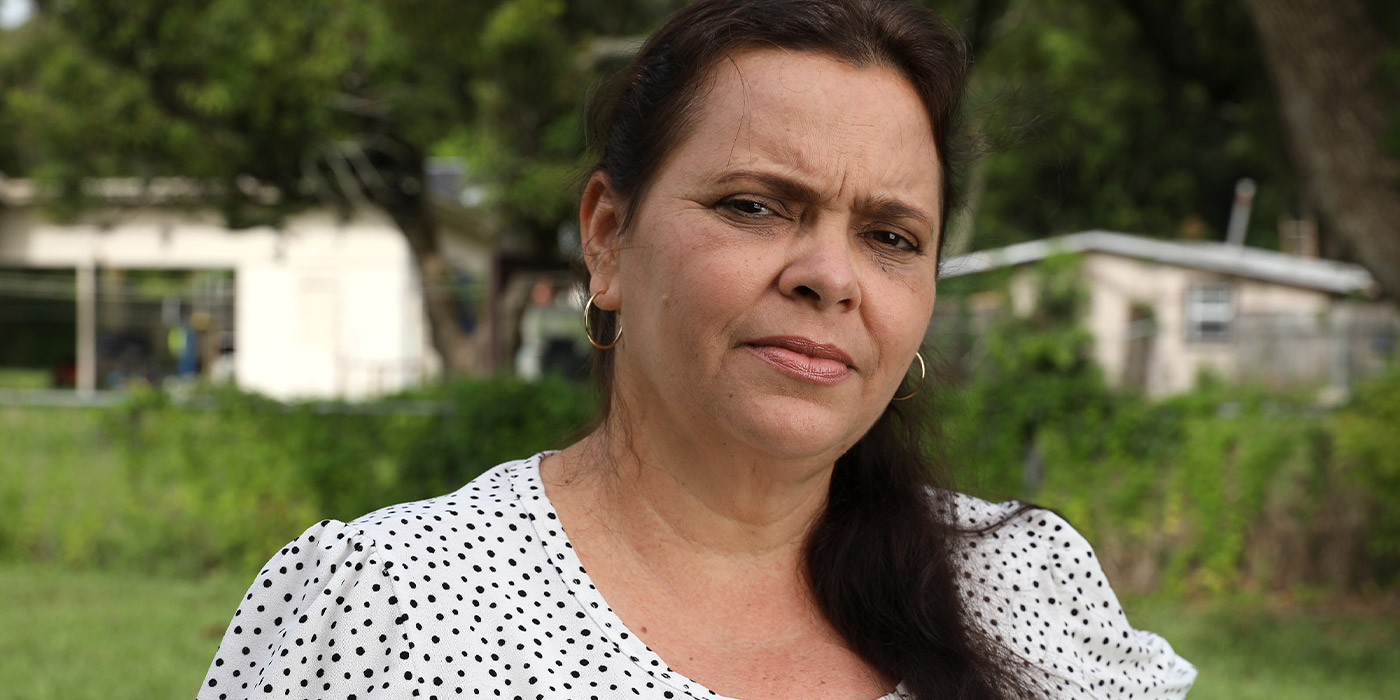
Credit: Gary Bogdon for the ACLU
“I flew from Cuba to Nicaragua and then traveled by bus through Honduras, Guatemala, and then Mexico. I crossed the border, and immediately turned myself over to Border Patrol. From there, I was sent to detention in McAllen, Texas for several days and then was transferred to Michigan where I remained for months until my release.
“I traveled by plane with my hands and feet in shackles. They said in case of an emergency you had to put on your life vest and oxygen mask, but if anything had happened I wouldn’t have been able to do it because of the shackles.
“I won’t say they treated me badly — nobody beat me — but I suffered a lot while detained. I had never been in prison before that, and everyone suffers there.
“I have high blood pressure and gastritis, so the coronavirus was a big worry for me because I’m a vulnerable person. If I were to catch the virus, I would be in more danger than most.
“We were at risk, some people there didn’t wear masks and they could infect us. Not everyone practiced social distancing around us. We were all very worried, and every day we became more vulnerable to catching the virus. But a person who is afraid to go back to their country and wants to fight for political asylum has to wait as long as it takes.
“When I was released, I was so happy. I didn’t know what to do so I cried and laughed. Now I’m home with relatives complying with all the immigration proceedings. But I know a lot of people who are still there are at risk and suffering. People that I came to care about a lot since we were there together for so long. It’s very painful.”

